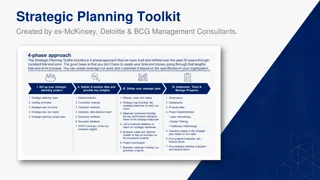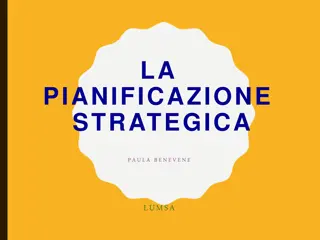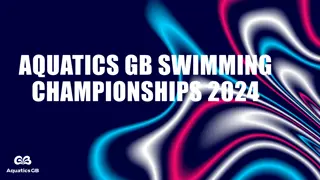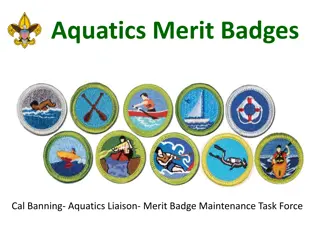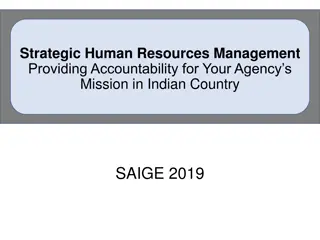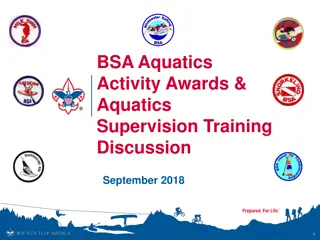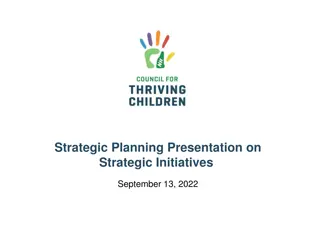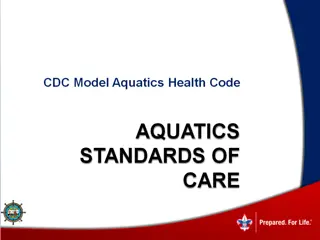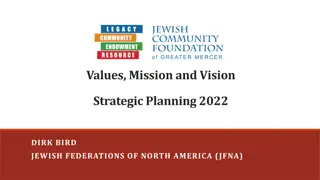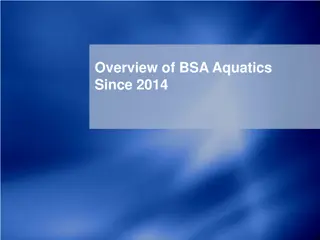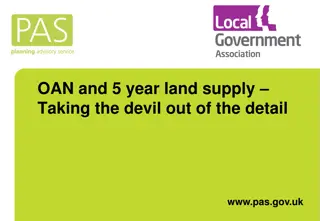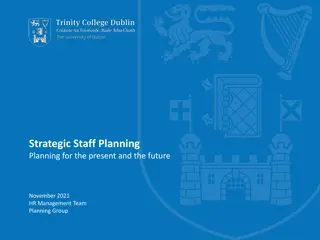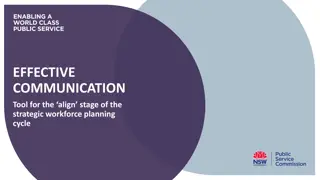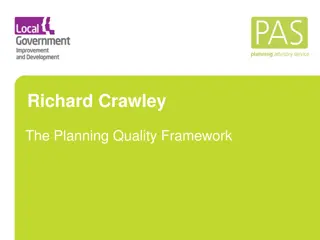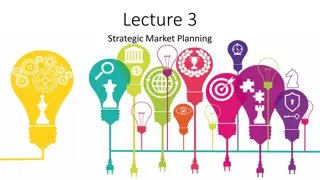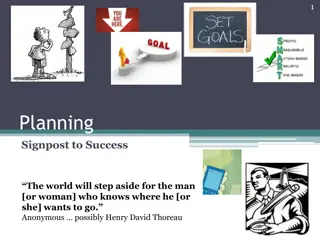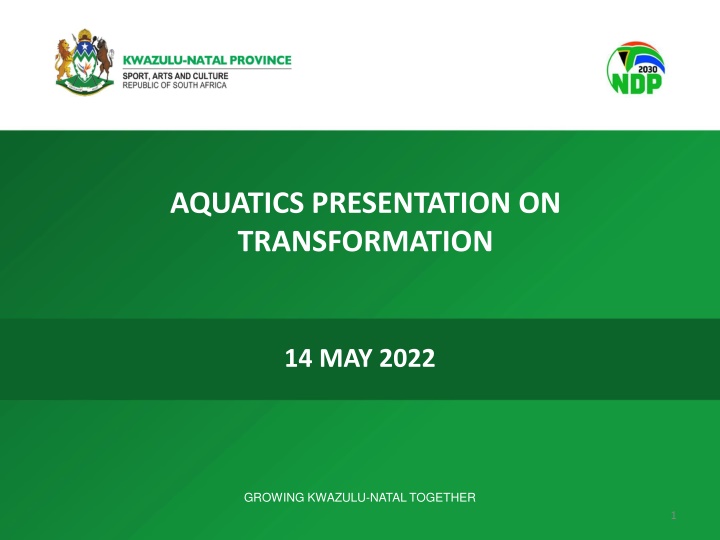
Transformation Efforts in Kwazulu-Natal's Sports Sector
Explore the ongoing transformation initiatives in Kwazulu-Natal's sports sector focusing on policies, funding, and challenges faced by sport organizations in achieving diversity and inclusivity. Discover the strategies implemented to drive development programs, address demographic imbalances, and enhance governance structures for a more equitable sporting landscape.
Download Presentation

Please find below an Image/Link to download the presentation.
The content on the website is provided AS IS for your information and personal use only. It may not be sold, licensed, or shared on other websites without obtaining consent from the author. If you encounter any issues during the download, it is possible that the publisher has removed the file from their server.
You are allowed to download the files provided on this website for personal or commercial use, subject to the condition that they are used lawfully. All files are the property of their respective owners.
The content on the website is provided AS IS for your information and personal use only. It may not be sold, licensed, or shared on other websites without obtaining consent from the author.
E N D
Presentation Transcript
AQUATICS PRESENTATION ON TRANSFORMATION 14 MAY 2022 GROWING KWAZULU-NATAL TOGETHER 1
Sport organisations will not escape the need to keep pace with and understand the changes in the environments within which they operate and to deal with it by overhauling policies, strategies, structures, programmes and operations. Whilst we have made steady progress with the transformation of sport, the composition of our national team at the Tokyo Olympics last year, laid bare the road we have yet to travel. As a department, we have developed our own tool to measure the progress of KZN sport federations in transforming their sectors. Our Funding Policy sets the transformation parameters sport federations must achieve to access financial support from the department. GROWING KWAZULU-NATAL TOGETHER 2
Over the last three years (2019/20 2021/22), the department has transferred R110,6 million to support sport federations and other non-profit entities to accelerate transformation and development programmes. The funding has also been able to resuscitate the sport and recreation sector and prevent the loss of jobs brought about by the pandemic. In the 2022/23 financial year, R45,4 million has been set-aside as a transfer payment to sport federations and non-profit entities. Support will be provided to 50 sporting bodies, which include federations, at a provincial and district level. Support will be given in the form of Transfer payments and Goods and services. A large part of the funding will be used to drive development and high-performance programmes, create jobs for development coaches, technical officials and administrators, capacity building programmes for the youth as part of career pathing, hosting of major and minor events, infrastructure support, promote women-in-sport and improve the governance of federations and other non-profit entities. GROWING KWAZULU-NATAL TOGETHER 3
EPG reports over the last 5 years have confirmed the relatively slow, inconsistent and inefficient progress made by most federations in the different dimensions of the Transformation Charter. One of the reasons for this appears to be the absence of longer- term planning processes targeted at shaping robust and sustainable sport structures capable of performing at the highest levels well into the future. In most instances strategic planning and strategic progress management processes, if in place, seems to be short-term oriented, without sufficient focus on foundation structures and sub- optimally communicated and monitored. GROWING KWAZULU-NATAL TOGETHER 4
OBSERVATION The overall average demographic profiles of national representative structures paints a grim picture in that with the exception of federation Board, President and CEO demographic profiles all national male and female senior and underage teams, coaches, and referee/umpires remains predominantly White (between 82 % and 50 %) and black African representation on average a low 9 % to 24 %. GROWING KWAZULU-NATAL TOGETHER 5
8 of the 19 federations, 42 %, of total number of federations reported boards more than 50 % White (baseball, bowls, gymnastics, hockey, jukskei, rowing, tennis, swimming.) The senior and underage national teams of these federations were also reported to be more than 50 % White. Women representation on the boards of 7 federations, 38 % of the total number of federations, have exceeded the 25 % Charter target. Swimming, representation of women on their Board was at 22%. GROWING KWAZULU-NATAL TOGETHER 6
CODE % Black African % White % Coloured % Indian % Generic Black Average National Senior Male Comparative Demographic 2016/17 Swimming 2 87 8 3 12 Average Underage Male Representation Profile 2016/17 Swimming 2 87 N/A N/A 13 The federations falling in higher sustainability risk category as a result of high % White senior team demographics includes bowls, baseball swimming, tennis, rowing, baseball, rugby, hockey and jukskei. Those codes reflecting a combination of predominantly White (50 % or more) senior representative team/individual demographic (bowls, baseball swimming, tennis, rowing, baseball, Softball, rugby, hockey and jukskei), in combination with a small number of underage non-representative teams (rowing and rugby, baseball, cricket, Softball, swimming, volleyball, bowls and table tennis) could be faced with sustainability challenges in the future. GROWING KWAZULU-NATAL TOGETHER 7
CODE % Black African % White % Coloured % Indian % Generic Black Average National Senior Female Comparative Demographic 2016/17 Swimming 2 87 8 3 13 Average Underage Female Representation Profile 2016/17 Swimming 2 87 N/A N/A 13 The federations falling in the high sustainability risk category based on % generic Black representation includes bowls, 5 %, swimming, 13 %, tennis, 25 %, rowing, 13 %, gymnastics, 29 %, hockey 25 %, and jukskei, 0 %. The challenges faced by black African female participants in their quest for higher representative honours are obvious in those codes with low average underage representative participation profiles - hockey, 24 %, gymnastics, 16 %, rowing, 15 %, table tennis, 13 %, athletics, 10 %, chess, 9 %, swimming,2 %, tennis, 0 %, and jukskei, 0 GROWING KWAZULU-NATAL TOGETHER 8
The essentially White demographic profiles (more than 50 %) of the female underage pipelines of particularly chess, 52 %, hockey, 53 %, gymnastics, 58 %, athletics, 77 %, tennis, 91 %, rowing, 85 %, swimming, 87 %, and jukskei, 86 % signals potential sustainability challenges similar to those being experienced by bowls, in the future. Codes with significant White demographic profiles, not officially part of school sport programmes could, with the significant decrease in the projected size of the White population, face sustainability, even survival challenges in the not too distant future. Swimming had 265 Nationally Active and Accredited Male Coaches as reported in 2016/17. 23% of these coaches are Black African with 35% Generic Black. The White demographic profiles of coaches compliments in bowls, 100 %, jukskei, 92 %, tennis, 83 %, rowing, 77 %, hockey, 72 %, netball,69 %, swimming,65 %, artistic gymnastics, 65 %, and baseball s 63 %, athletics, 59 %, rugby 55 %, cricket and chess 52 % demonstrates that in general coaching structures are demographically largely untransformed. Code GROWING KWAZULU-NATAL TOGETHER 9
Swimming has 416 Nationally Active and Accredited Female Coaches. The total number of National Active and Accredited Male and Female Coaches (combined for swimming) was reported at 681. Of this total 13% were reported as Black African and 24% Generic Black. More than half of the federation s female coaches in the codes audited are more than 50 % White cricket, 53 %, gymnastics, 64 %, hockey, 72 %, rowing, 73 %, swimming, 84 %, tennis, 95 %, jukskei, 97 %, bowls and chess 100 %. Swimming has 864 Nationally Active and Accredited Male Umpire/Referees. 5% are Black African and 25% Generic Black. White demographic profile reported was more than 50%. Swimming has a total of 1488 combined Nationally Active and Accredited Male + Female Referee/Umpires. 5% are Black African with 245 Generic Black. Urgent need exists to transform our coaching structures. Code GROWING KWAZULU-NATAL TOGETHER 10
Sport is a wonderful equalizer and a very efficient tool to ensure inclusion. It can certainly pace everyone on a level playing field. Wilfred Lemke, UN Office on Sport for Development & Peace Code The impact of culture and value differences on the rate and extent of transformation in sport structures may not have been fully understood and effectively dealt with over the past 23 years. In order to bring about change, organisational culture often have to be overhauled. At this point the extent and nature of federation involvement in school sport appears to be focused on supporting competition at provincial and interprovincial level in selected underage categories, primarily involving previous Model C schools, as part of talent identification and further development processes. GROWING KWAZULU-NATAL TOGETHER 11
Swimmers that were in the 2022 team and have shown potential be monitored and supported to assist them in improving for 2023. Black African swimmers be identified and put into a program with a committed coach, preferably at each district or zonal level to prepare them for selection for the 2023 tournament. The federation needs to support this program. Leaving this to individual coaches is not achieving the desired result. A dedicated coach should be identified in each District to nurture the talent of black swimmers. We need to learn from Gauteng and Western Province their formula for producing top black swimmers and meeting the transformation targets. GROWING KWAZULU-NATAL TOGETHER 14
POSITION PROVINCES POINTS 1 Gauteng Schools Aquatics Team 2091 2 Western Cape Aquatics 1524 3 KZN Schools Team 1341,50 4 Free State Schools 1007 5 Mpumalanga Province Aquatics 904,50 6 Limpopo Province 782 7 North West Swimming 728 8 Eastern Cape Aquatics 662 GROWING KWAZULU-NATAL TOGETHER 15
Swimmers that were in the 2022 team and have shown potential be monitored and supported to assist them in improving for 2023. Black African swimmers be identified and put into a program with a committed coach, preferably at each district or zonal level to prepare them for selection for the 2023 tournament. The federation needs to support this program. Leaving this to individual coaches is not achieving the desired result. A dedicated coach should be identified in each District to nurture the talent of black swimmers. We need to learn from Gauteng and Western Province their formula for producing top black swimmers and meeting the transformation targets. GROWING KWAZULU-NATAL TOGETHER 16
The Department has an approved Water Safety Strategy developed in partnership with KZN Aquatics, Lifesaving SA, eThekweni Municipality, and other key stakeholders. The Strategy has been approved by the KZN Cabinet. We are still experiencing a high level of drownings in KZN, with an average of 2 reported drownings per week. The department and its partners, KZN Aquatics and KZN Lifesaving will continue with their Water Safety and Learn-to-Swim programmes. Last year we managed to teach 350 children to swim. This programme will continue, but we will however we are trying to find a corporate business partner to supplement our funding of this programme. Our vision is Every Child a Swimmer Our target is to employ 300 swimming instructors in the province. Each instructor will teach 400 children to swim a year and we could thus teach 120,000 children to swim a year. GROWING KWAZULU-NATAL TOGETHER 17
There is a need to resuscitate swimming in schools with schools from townships being given the opportunity to Learn-to-Swim. Black clubs such as Umlazi Sharks to be given the support required to nurture talented swimmers from their communities. Established coaches to consider acting as mentors. Develop strategies to identify talent from townships and rural areas and use government available funding to support talented swimmers. Strong club base with special focus on those townships where public swimming pools are available. Use departmental programmes such as EADP, Transfer payments and Sport Scholarships to supported talented swimmers from disadvantaged backgrounds. Develop a strategy to increase the pool of black swimmers in high- performance progrmmes. GROWING KWAZULU-NATAL TOGETHER 18
Increase the pool of accredited black ccoaches and technical officials. Adopt programme, similar to cricket and rugby, where we use former Model C and Private Schools to offer bursaries to talented black African swimmers. Let us be honest about our transformation agenda and lets work together with clearly set and achievable targets. The department will look to support well-planned programmes with researched budgets and deliverables to promote talented Black African swimmers into major competitions. Use sport as a career path for athletes who can progress to earning a living out of the sport. GROWING KWAZULU-NATAL TOGETHER 19

